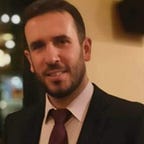If You Could Name the City of Angels Today, Would You Still Pick Los Angeles?
The City of Angels, La La Land, Tinseltown. We know it as Los Angeles, an iconic city shaped by dreams and dramatic contradictions. But let’s play a little thought experiment: If you had the chance to name the City of Angels today, would you still pick “Los Angeles”?
This city, founded as El Pueblo de Nuestra Señora la Reina de los Ángeles (‘The Town of Our Lady the Queen of Angels’) in 1781, was once a small mission town. Fast forward to 2023, and it’s a cosmopolitan epicenter with over four million residents, boasting more than a hundred languages and reflecting a rich tapestry of culture. Indeed, the LA we know today is a far cry from its humble beginnings.
The first thing to acknowledge is LA’s legacy as an emblem of hope and reinvention. For many, Los Angeles symbolizes a city of dreamers — it’s home to Hollywood, after all, the movie capital of the world. Every year, thousands of artists, writers, actors, and musicians flock to LA, hoping to make it big. As author John Gregory Dunne famously quipped, “LA is where you confront the objective fact that you mean nothing.”
But that’s just one facet of the diamond. Peel back the glitzy glamour and the City of Angels grapples with grittier issues. In 2023, Los Angeles hosts a homeless population of around 41,000, a figure up by 16% from 2019. It’s a city where the gilded mansions of Bel Air contrast sharply with the tents of Skid Row.
Moreover, the city’s bustling economy, accounting for almost a trillion dollars, makes it a powerhouse on par with countries like Indonesia and Turkey. But the wealth disparity is striking. A 2021 report revealed that the top 1% in LA County earn 25 times more than the bottom 99%.
And then there’s the culture — a kaleidoscope of cuisines, languages, music, and fashion. The city’s multicultural mosaic makes it vibrant, giving it a unique charm and character. But with that diversity, comes the unavoidable challenge of societal stratification. Like a modern Babel, it’s a city where unity and division coexist, a city that champions diversity while wrestling with integration.
From the viewpoint of family, LA presents a paradox. Its neighborhoods, from Echo Park to Pacific Palisades, offer an array of living experiences. Its strong school systems, like the Los Angeles Unified School District, and a plethora of world-renowned universities make it a magnet for families. However, the high cost of living and safety concerns are real deal-breakers for some.
So, if I were to rename the City of Angels today, reflecting its dynamic diversity, persistent paradoxes, and evolving identity, what would I choose? Possibly, it would be ‘City of Dreams’, encapsulating the lofty aspirations and harsh realities that coexist.
But, and here’s my personal take: I believe we should still call it Los Angeles. The name encapsulates the city’s historical legacy, its spiritual foundation, and, yes, its contrasts and complexities. Just as an angel can symbolize hope, guidance, and, at times, sorrow and struggle, so does the city.
As we change the narrative and work on its issues, we don’t erase its name; instead, we let the name remind us of where we started and how far we’ve come, and more importantly, where we need to go. And isn’t that life in a nutshell — a blend of joy, struggle, achievement, and hope?
There’s a line in Randy Newman’s song, “I Love LA,” that goes, “Look at that mountain, look at those trees, look at that bum over there, man, he’s down on his knees… we love it!”. To me, that’s Los Angeles in essence — it’s the glamour and the grit, the dreams and the downfalls.
So yes, if I could name the City of Angels today, I’d still pick Los Angeles. Not to sugarcoat its struggles, but to recognize its resilience. Because just like its inhabitants, the city keeps dreaming, keeps fighting, and keeps evolving. And isn’t that something worth cherishing?
